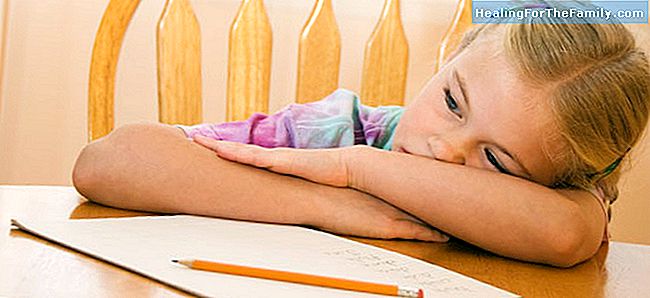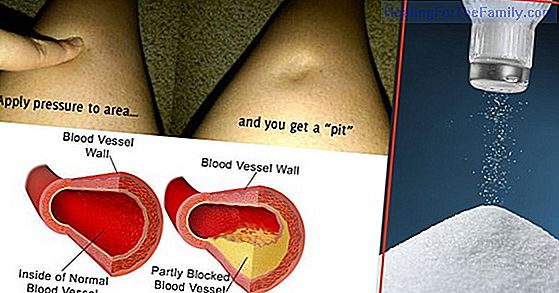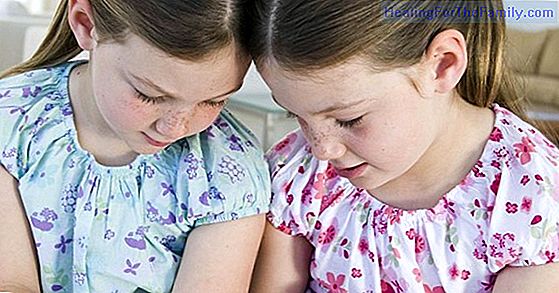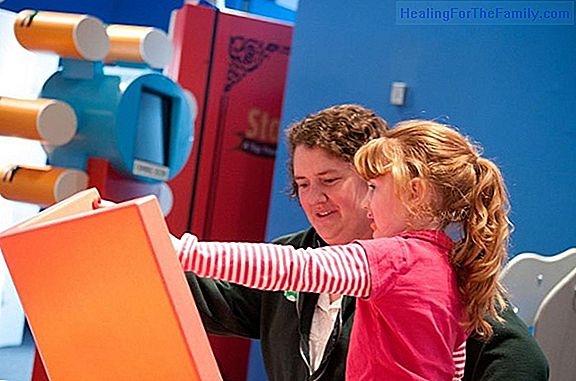TDA in children: symptoms and treatment
Children who come in their world ... clueless ... who lose things ... does it mean they have ADD? Not all children who are confused or find it hard to concentrate have an attentional disorder. There are many factors that can influence those difficulties to maintain attention (maturational, developme
Children who come in their world ... clueless ... who lose things ... does it mean they have ADD? Not all children who are confused or find it hard to concentrate have an attentional disorder. There are many factors that can influence those difficulties to maintain attention (maturational, developmental ...) We tell you what is the ADD in children and what is the treatment that is usually carried outto improve their attention capacity.
What is the TDA children

The TDA is a type of ADHD that attends without impulsivity or hyperactivity, in the diagnostic manuals it is called ADHD type inattentive, but we here, to avoid confusion, we will refer to as ADD.
ADD is a disorder of neurobiological origin en, in which there is a deficit in the functional structure of certain areas or brain centers related to the regulation of different attentional processes.The child with ADD has difficulties in selecting the relevant focus of attention, (he does not know what he has to attend to) he presents slowness in motor tasks and in cognitive tasks, he is easily distracted, and all this can result in school age to difficulties in learning, as well as can affect the emotional and personal areas of the child, (low self-esteem, anxiety, behavioral problems ...)
Symptoms of ADD in children
Some general characteristics of children with ADD that derive from the diagnostic criteria and that can also serve as warning signs are:
- Difficulties in the focus of attention:
Failure to pay due attention to details, is easily distracted by external stimuli, carelessly make mistakes in the tasks school, (do not notice) does not follow the instructions and does not complete homework. - He does not seem to listen when he speaks to him directly (he seems to be in his world)
- He has difficulty in organizing tasks
and activities, bad time management. - He is disorganized
and careless and loses things. Se - You forget things , even the most routine ones, (you forget your backpack or books at school, you do not write on the agenda, etc.) - Slowness in motor tasks
and execution of cognitive tasks.The problems of children with ADD manifest themselves both at school and in the family and affect their academic and personal and social performance.
What to do if we suspect that our child has ADD? At the slightest suspicion that our child may have an attentional difficulty, it is necessary to perform an adequate diagnostic assessment both at the medical level (neurologist / neuropaediatrician) and psychopedagogical. This evaluation assessment is fundamental to provide the child with the appropriate treatment, both at an individual, educational and school level. But it must also receive the
necessary advice to establish adequate educational guidelines.
The assessment by the neurologist is necessary to rule out other problems that may be causing the symptoms and in the case of confirming the diagnosis
provide the necessary pharmacological help if it is considered appropriate.
Psychopedagogical assessment includes tests of aptitudes and abilities: intelligence, reasoning, attention, memory, executive functions, reading and writing, questionnaires for parents, teachers and the child himself to assess both the child's behavior and emotional and social aspects. In addition, information must be gathered about the child's environment (family and school), social skills of the child, as well as all the possible information about the child's history (pregnancy, childbirth, development, feeding, etc ...).
With all these data, and with the criteria for establishing the different manuals for the diagnosis of ADD, the existence or absence of ADD will be established. What is the treatment in case of ADD in children?
Treatment in case of ADD is a
multidisciplinary treatment
that may include pharmacological treatment, prescribed and supervised by the neuropaediatrician or specialist doctor, psychoeducational intervention and guidance to families.
Regarding the school, children with ADD are included within the group of students Specific Learning Difficulties so it is necessary to implement a series of actions and supports so that they can achieve the established educational objectives. Psychopedagogical intervention includes: training in cognitive skills, social skills, reasoning, attention training, literacy, as well as guidance to families and educators. It is also important to explain to the child what happens to him, in order to lower his anxiety levels and improve his self-concept and self-esteem. The
joint work Family - School - Specialist is fundamental
for the success of the intervention.












